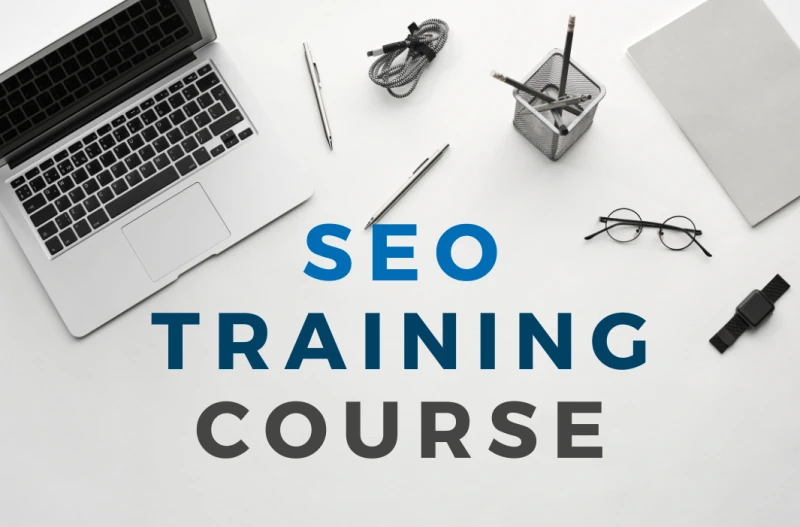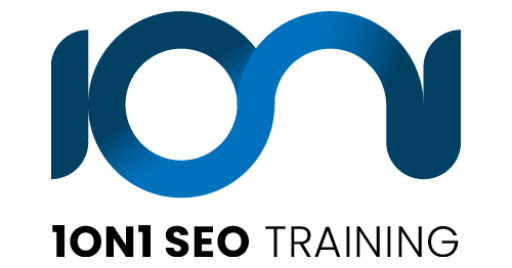Suppose you're considering a career in search engine optimization or upskill yourself to make your digital businesses fare better on the internet. In that case, 1ON1 SEO Training can help provide the SEO specialist training that you need. There's never been a better year to improve your SEO skills with an SEO training course and professional SEO classes from 1ON1 SEO Training.
Contact 1ON1 SEO Training today and ask us about our SEO certificate training course!
SEO the World Today
Online searches have overtaken almost every other method of discovering and exploring the internet, with <93% of online experiences beginning with a search engine. As a result, the ranking has become more critical than ever. For example, the click-through rate for the top-ranking search result was approximately 30%, but just 4% for the fifth-ranked result.
Only one percent of searchers remained to click on the ninth spot on the first page of Google.
Better SEO rankings can contribute an enormous impact on company performance. An SEO specialist training course will provide the concrete skills required to carry out successful SEO campaigns.
It's also no surprise that search marketing experience is in high demand, whether as a full-time career or as part of a marketing or promotions role. Since last year, there has been a 43% increase in SEO job posts, and the figures are positive in different industry verticals and markets.
SEO experts have become integral and indispensable elements of countless marketing teams. Non-specialists can be hired, depending on their skills. Everyone – including interns and CEOs - should be familiar with SEO. In addition, SEO is indispensable to businesses and enterprises that rely on inbound marketing.
Enroll in an SEO Training Course That Upskills and Promotes You
Learning how search engines function and honing your SEO skills are always beneficial. Even if "SEO" isn't formally part of your designation, demonstrating SEO skills on your resume can raise pay.

Many SEO job advertisements ask for experience with SEO software and SEO-related tasks. However, the major search engines never stop improving to provide the most relevant results to users. Therefore, SEO experts must constantly update their approaches, adjust to search engine changes, and learn new abilities to stay current with best practices.
1ON1 SEO Training's SEO training course provides the best-in-class, real-world SEO application. The curriculum is customized for the learner's immediate needs. You will learn expert, industry-level SEO when you complete your course and earn your SEO certificate.
What's In an SEO Training Course?
While challenging, SEO is lucrative and is among the most promising careers for anyone who has already dipped their toes in digital marketing. SEO unlocks your website's potential by combining data, analytics, content marketing, and HTML and technical site optimization expertise.
1ON1 SEO Training's SEO course covers all these essential abilities and how they work together to create a successful marketing plan. You'll learn about Google's popular tools, such as Google Analytics 4 and Google Trends, advanced web analytics, and a 360-degree website planning and marketing grasp. In addition, learn about the different SEO families, content marketing, web analytics, keyword management and research, and other topics.
SEO Foundations
•A Brief Introduction to SEO
•The Search Engine Framework: How Everything Works
•Different Kinds of SEO
•Market Intelligence and Keyword Research
•Performing On-Page Optimizations
•Performing Off-Page Optimizations
•Remedying Duplicate Content
•Mastering Local SEO and Local Search Marketing
•Dealing with Algorithm Updates
•Learning and Using SEO Tools
Advanced SEO For Strategists and Analysts
•Planning A New Website
•Marketing a Newly Optimized Website
•Defining Analytics and Digital Measurements
A Deep Dive into Content Marketing
•What Is Content Marketing?
•What is Inbound Marketing?
•What is Social Media Marketing?
•What's in a Successful Content Marketing Strategy?
•Mastering Customer Intent Vs. Demographics
•Producing Hero Content, Content Hubs, and Help Content Regularly
•How Can You Create Better Content?
•B2B and B2C Content Marketing Strategies
•Helping Customers Find Your Website Through the Knowledge You Offer
•Measuring Content Effectiveness
•Measuring the ROI of SEO
Web Analytics for SEO
•What is Digital Analytics?
•The Building Blocks of Analytics
•Mastering the Fundamentals
•The Fundamentals of Data Analysis for SEO
•Managing Analytics
•Audience
•Audience Retention
•Expansion
Sign Up for An SEO Specialist Training Course
Professionals looking for a career in SEO typically encounter job offers for SEO specialists. An SEO specialist training course is a practical way to catch industry headwinds and immediately land SEO positions. Unfortunately, the job titles "SEO specialist" and "SEO manager" become interchangeable in some instances as agencies have no fixed standards. As a result, sometimes, these job titles are used loosely.
SEO specialists are digital marketing experts who employ research and analysis to increase a website's search engine ranking.
Most SEO specialists have a bachelor's degree in a related discipline like marketing or information technology. In addition, several reliable online courses are available to help you enhance your search engine optimization skills.
1ON1 SEO Training is one such platform, as we offer customized classes guided by an industry veteran with nearly two decades of experience. And while SEO certificates are not always required to land SEO jobs, it's an excellent idea to upskill yourself before applying for this position.
Successful SEO specialists have strong analytical, communication, and research abilities to better understand clients and give the best possible optimization. Their typical responsibilities include:
•Developing SEO techniques to improve the company or organization's search engine rankings.
•Create an SEO keyword list for the company's website and marketing collateral.
•Set quantifiable goals so that the company can measure marketing efforts.
•Track daily performance indicators to see how well your SEO approach is working.
•Synchronize goals, and communicate effectively with other marketing experts.
•Manage the current SEO strategy in collaboration with marketing and sales department colleagues.
•Oversee the creation of engaging and high-quality website content, such as blog entries and page descriptions.
•Manage content production and upgrade website links.
Sign Up for SEO Analyst Training
If you like combining SEO strategy with plenty of data and trends, then signing up for SEO analyst training is the most viable path for you as an SEO professional.
The SEO analyst works as part of the larger SEO team, identifying and implementing search engine optimization strategies to increase traffic from keyword searches and organic search engine traffic. Therefore, analysts must possess a specific skill set to effectively deal with the SEO team and other departments that rely on this channel.
An SEO analyst's primary responsibility is to improve the number of people who visit a website or a group of websites. SEO stands for "search engine optimization," which identifies and implements techniques to help a company's websites rank higher in SERPS, resulting in more organic (non-paid) traffic.
Customers buying products on the website or persuading advertisers to advertise on the site can benefit from SEO. It could be for the SEO analyst's own company's website or a customer working for an agency.
Specific skills required include:
•Excellent communication skills
•Excellent organizing and detail-oriented skills.
•Strong problem-solving and analytical abilities.
•A comprehensive understanding of the major search engines and modern web optimization strategies and knowledge of search engine spiders, ranking algorithms, etc.
•Working knowledge of digital content management systems.
•Knowledge of CSS, JavaScript, and HTML.
SEO analysts can thoroughly audit a website's current SEO efforts, including site structure, page structure, and internal linking structure. The SEO analyst finds areas for improvement and provides recommendations to improve each area. He can assist in creating, defining, and implementing unified SEO strategies and campaigns that will result in long-term, sustainable traffic to the site.
Additionally, analysts also assess the allocated website, blogs, social media profiles, and e-commerce pages through research, data collection, and analysis. Finally, they examine traffic metrics such as keyword rankings and search engine referrals while providing much-needed help and insights on upgrading user experience.
You will also need an analyst if your content is not ranking. Adjustments may include adding new keywords and refining link techniques to improve SEO and website visibility. Analysts monitor specific SEO activities, collect, and analyze data, and inform the team of the findings.
SEO analysts analyze data on website performance and remain on top of ever-changing SEO trends to help an organization boost the number of people who visit their website(s).
Once an SEO analyst is on board, expect the analyst to perform some or all the following functions:
•Measure important analytics data such as organic traffic, conversion rates, and time spent on the page using tools such as Google Analytics monitoring and reporting on search trends and SEO performance analyzing websites and social media pages to provide recommendations for improvement
•Implement link-building strategies making suggestions for SEO-friendly content creation.
•Providing further keyword insights and SEO advice for other organizations tasked with optimizing the web pages.
SEO analysts might operate as part of a company's marketing department or on behalf of clients for an SEO agency. SEO analysts are employed by many companies (directly or through an agency), including educational institutions, non-profit organizations, and government organizations.
Sign Up for SEO Strategist Training
An SEO strategist oversees attracting visitors to a company's or organization's website.
SEO strategist oversees improving website traffic over time by tweaking the on-page and off-page campaigns of the company.
On-page SEO entails optimizing each page for a set of keywords. Then, the strategist employs on-page and technical SEO to increase genuine, targeted traffic. Companies tend to give SEO strategists access to both the marketing and sales departments, as these three cogs can genuinely drive sales and increase revenue for larger companies.
An SEO strategist uses data analysis to derive insights that aid decision-making. It's the method of modeling, gathering, and analyzing data to gain insights. Many strategies and methodologies are utilized to undertake data analysis depending on the industry and the goal of the analysis.
SEO strategists analyze data from sources like Google Analytics to figure out which search terms or web pages bring in the most traffic, sales, and leads. SEO strategists can use data analysis to make data-driven judgments regarding keyword targeting and focus their optimization efforts on maximum impact.
Keyword research is crucial for any SEO plan. It aids in the targeting of keywords in material that users type into search engines when looking for services, general information, or products. SEO strategists find different classes of popular keywords for the business or organization.
Frequently Asked Questions (FAQ) on SEO Specialist Training, SEO Analyst Training, and SEO Certifications
What is technical SEO?
Your profession as an SEO specialist knows how to use the correct digital tools. After that, you're ready to upgrade to higher-order skills and best practices that will offer you an edge, such as more advanced tactics for improving your content, as well as soft skills like strategic theory, which should underpin your entire approach to SEO after you've learned how to use them.
Simple practice - establishing your SEO campaigns and trying different things to discover what works and doesn't – is a fantastic way to build these skills. Always keep thorough records of your SEO efforts! This will be crucial later on.
Technical SEO - changing the technical parts of a website to boost its ranking and exposure – is a clever tactic to use at this point. For example, indexing, rendering, and website architecture are technical SEO methods to make a website quicker and easier for Google to find and comprehend.
You'll be expected to make technical SEO improvements to your web pages yourself if you're a small business owner, work for a smaller organization, or consult. While keywords and content are frequently essential aspects of SEO, other elements such as page lazy loading comments sections, faster loading times, better HTML tags, appropriate metadata, and microdata also play a role. Again, if you don't have access to a webmaster, you may have to make these adjustments yourself.
Are our SEO tools essential?
SEO (and its sibling, SEM, or search engine marketing) is about more than keywords. To correctly generate and optimize content for all platforms – including multiple search engines, search methods, display types, and social media sites – a multilayered strategy is required, which takes a lot of time and planning.
Fortunately, there are tools accessible to support you in performing research and analysis to produce fresh insights, creating, formatting, and posting material; and monitoring what's working and what needs improvement.
There are also technologies to help automate many of an SEO expert's most time-consuming activities, increasing productivity and developing great content.
To get the most out of these helpful tools, you'll need a firm grasp of how search engines work and how the search process translates into search results—concepts like site crawlers and page indexing; meta descriptions, on-page optimization, and answer boxes; Google Search Console, rich snippets, and data highlighter; and pay-per-click advertising, ad groups, and remarketing. Other technologies and apps combine in-depth keyword research and content development.
Is SEO a promising career?
You will be the judge of that! SEO work nearly always entails collaborating with others and working directly with textual content. People who have completed SEO strategist training and have landed great jobs typically stay in the industry as they upskill and get better offers.
Because connecting with an audience is an essential element of the job, understanding how to communicate effectively isn't just a plus; it's a requirement.
Even if you're not producing the material for a website yourself, you'll undoubtedly be fine-tuning a writer's work to increase specific keywords – not to mention composing headlines, abstracts, excerpts, and captions – so your good writing abilities will come in handy.
Organizing a campaign is also necessary. Excel and the research into the virtually limitless factors SEO experts weigh are unavoidable. Even simple activities like budget management necessitate basic administrative abilities. As you delve deeper into research – such as A/B testing or conducting a long-term study of how your SEO techniques affect your organic traffic – keeping things organized will become increasingly important.
However, in the end, SEO is all about strategy.
Content optimization is a mix of art and science, and you'll need to comprehend the data in front of you. Although analytics tools can assist you in doing A/B testing and determining where your traffic originates, there is no clear solution for what to do with that information. To get the best outcomes, you'll need to think about which tactics are acceptable and productive and use your resources strategically. However, you won't know which instincts to believe unless you try it — practice is crucial.
Should I create an SEO portfolio after completing my SEO analyst training?
The projects you create while developing your talents can last far beyond the practice stage. These practice efforts will form the base of your professional SEO portfolio. Your portfolio is the make-or-break component of your job search – especially if you don't currently work in SEO. Therefore maintaining records is essential: now that you know what performs, you can bundle your work to showcase the various tactics you've tried, demonstrating that you understand how to use and make them work.
This kind of empirical information is significant for SEO experts, whose job outcomes are behind the scenes and aren't always well-represented by content users' views. So, rather than displaying a completed website, an SEO specialist must demonstrate a thorough understanding of processes and outcomes through research, organization, analysis, and creative planning.
What else should you do apart from enrolling in SEO analyst training?
You should have a website that ranks as well as you rank your clients.
You have a well-presented portfolio of projects to show off your abilities. Apply them to your website to demonstrate that you're an SEO expert to put your money where your mouth is and attract potential employers. But, on the other hand, what good will your SEO course be if your website doesn't shine as bright as you'd like it too?
Other SEO specialists, of course, are following suit. However, you'll need to be proactive to help your website stand out, and one of the most efficient methods to achieve this is to become active on your website. Writing posts and articles for other websites, for example, will not only establish you as a thought leader and increase your professional profile, but it will also drive incoming links and traffic, which is a component of your website's rating.
The greater the impact, the more extensive your network.
Unsurprisingly, an extensive network as an SEO specialist to get SEO specialist training begins online. However, there are several offline opportunities to meet and network with those in your industry and those in similar fields, such as digital marketing, promotions, user experience design, and advertising. In addition, SEO conferences, workshops, virtual summits, and other digital resources allow you to network with others in your field while brushing up on your knowledge.
How relevant is SEO to larger enterprises?
The most common source of leads is SEO. While most organizations recognize the usefulness of SEO, they may not realize all of the additional value-added benefits of enterprise SEO. SEO can assist your bottom line across the board and be a channel in and of itself.
Departments that collaborate with company SEO departments reap numerous benefits. It can also help with sales, brand awareness, and providing insights and value to many other aspects of your company. However, there is more value beyond the SEO channel's remarkable results.
A well-implemented business SEO strategy can provide numerous benefits, both outside in the digital world and internally across multiple departments. It can, for example, aid in brand recognition and thought leadership distribution.
Enterprise SEO has been increasingly focused on business intelligence (BI). BI serves as the foundation for sharing value-added benefits across enterprises. BI provides insights that can help firms boost efficiency and productivity while also better understanding their customers by leveraging big data.
BI, in particular, may provide real-time insights into consumer behavior and purchase patterns, accurate sales and marketing performance tracking, and fast notifications on customer issues and data abnormalities. Over 79% of marketers want business information to assist them in driving digital strategy and match it with company goals this year.
As the growth of big data accelerates, more sectors will likely turn to business intelligence to obtain a competitive advantage. But gathering data isn't enough; you also need to analyze it at scale to gain insights that can help you design your digital strategy and inspire cross-departmental collaboration. For example, marketers may better understand customer demands and preferences by analyzing historical and real-time SEO data, including content, digital, sales, and omnichannel product movement.
The most effective marketers will use this data to make better, more educated decisions about their overall marketing and go-to-market strategies to achieve their corporate objectives.
Businesses may make strategic decisions to help them survive and grow in today's ever-changing landscape by analyzing consumer behavior patterns and market factors. Furthermore, firms can pivot in real-time to suit the needs of their customers by using this data to track demand and market volatility.
Here's What to Expect After Getting Your SEO Certificate:
1. Identify prospects and develop an effective content marketing plan by creating intriguing and compelling marketing material.
2. Establish brand messaging and content guidelines.
3. Discover how to uncover industry influencers and promotional possibilities.
4. Learn how to create appropriate content for each target segment by learning content marketing strategies, tactics, and best practices.
5. Create content best practices for many media formats, such as social media, photos, and video.
6. Utilize data from various sources to conduct quantitative and qualitative research and generate data-driven business insights.
7. Analyze digital data to gain valuable insights into all parts of the consumer lifecycle through digital channels.
8. Learn the fundamentals of web analytics and apply them across digital media.
9. Learn about content, mobile, social, and web analytics in depth.




